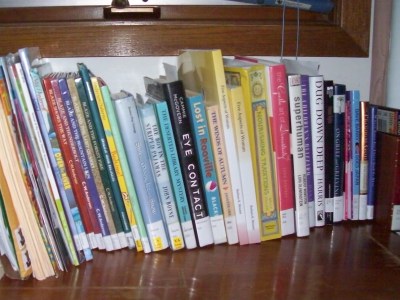Notes on Francis Chan’s
Forgotten God
Chapter 1: I’ve got Jesus. Why do I need the Spirit?
In the first chapter of Forgotten God Chan encourages his readers to ask themselves a seemingly simple question:
“When was the last time I undeniably saw the Holy Spirit at work in or around me?”
It seems simple but for the difficult corollary question: How can I incontrovertibly identify the Spirit’s working? How can I be sure that what I see is the Spirit at work?
Acts 2 gives an example of the undeniable activity of the Holy Spirit. The disciples are filled with the Holy Spirit. They start speaking in tongues. They’ve got tongues of fire sitting on them. Wind is rushing through the house they’re in. This is undeniably the action of the Holy Spirit.
But if you asked me the last time I saw something like that, I’d have to say…Never. I’ve never heard a rushing wind through a house. I’ve never seen tongues of fire resting on people’s heads. I’ve heard people speak in tongues–but then I’ve also heard people babble in imaginary languages. So I don’t know that I can claim that as an undeniable act of the Holy Spirit.
I’ve known people who would exclaim after a particularly emotional church service that “the Spirit was sure moving tonight.” But how do we know that? I’ve seen people emotionally moved by political speeches–but that doesn’t mean the Spirit was moving.
I’ve known people who identified “goosebumps” moments as the working of the Spirit. But I get goosebumps when it’s cold and shivers up my spine when I see a cool scene in a movie. That doesn’t mean the Spirit is at work.
So what is an undeniable act of the Holy Spirit? What does the Holy Spirit do that only the Holy Spirit does–so that when I see it, I can clearly identify the activity of the Holy Spirit?
A quick word study of “Spirit” in the New Testament highlights a few main activities of the Spirit.
Scripture is clear that the Spirit is active in salvation. He washes, justifies, and sanctifies the believer (I Cor 6:11, II Thess 2:13, Titus 3:5, I Pet 1:2). He grants access to the Father (Eph 2:18). He frees us from the law of sin and death (Rom 8:2). He gives life (John 6:63, II Cor 3:6).
The Spirit gives the believer assurance of salvation. It is in the Spirit that we cry out “Abba, Father” (Rom 8:16, Gal 4:6). The Spirit is given as a guarantee (II Cor 5:5, Eph 1:13-14). At salvation, we are sealed with the Holy Spirit (Eph 1:13-14, Eph 4:30).
The Spirit of God is intimately involved in sanctification of the believer. It is by the Spirit that the believer puts to death the deeds of the body (Rom 8:13). When one walks in the Spirit, he no longer fulfills the lust of the flesh (Gal 5:16). The Spirit produces fruit of godly character in the believer: love, joy, peace, longsuffering, kindness, goodness, faithfulness, gentleness, self-control, righteousness, and truth (Gal 5:22-23, Eph 5:9). The Holy Spirit transforms the believer into the image of Christ (II Cor 3:18).
The Holy Spirit gives understanding of the things of God. He teaches and brings to remembrance the things that Jesus said (John 14:26). He speaks what He hears from Jesus (John 16:13-15). In Him, the mystery of Christ is revealed (Eph 3:5). Indeed, Scripture says that no one can understand the things of God except by the Spirit of God (I Cor 2:10-12)
The Holy Spirit is a witness to God and enables believers to be witnesses. Jesus said that when the Spirit comes, He will testify of Christ (John 15:26). He promised that when the Spirit comes, the disciples would receive power and be witnesses to Christ (Acts 1:8). When the early church was filled with the Spirit, they testified boldly of Christ (Acts 4:31, 5:32; 18:5). John repeats that the Spirit of God witnesses (I John 5:6-8), and expands it to say that we can test the spirits to know if a spirit is the Spirit of God by whether or not the spirit confesses that Jesus Christ has come in the flesh (I John 4:1-3).
The Holy Spirit additionally enables tongues, prophesy, and a variety of other gifts (Acts 2:4, 10:45-46, 11:28, 19:6, 21:4; Romans 12:7-12). The Holy Spirit gives the believer hope and comfort (Acts 9:31, Rom 15:13, Gal 5:5). The Holy Spirit gives direction (Acts 8:29, 10:19, 13:2, 16:6-7, 20:28).
Ultimately, the Holy Spirit enables the believer to say that Jesus is Lord. I Corinthians 12:3 states that there is one thing that the Spirit and only the Spirit can do. No one can do this thing without the Holy Spirit’s enabling.
“Therefore I make known to you that no one speaking by the Spirit of God calls Jesus accursed, and no one can say that Jesus is Lord except by the Holy Spirit.” (I Cor 12:3)
So how can I know undeniably that the Holy Spirit is at work? I know if the word of God is being boldly proclaimed, if people are being saved, if the saints have assurance of salvation, if there is understanding of the Scriptures, if believers are being freed from the power of sin and are walking in godly character, if believers walk with a clear sense of direction, if believers have hope, if believers are walking in the gifts of the Spirit.
Ultimately, if the Holy Spirit is at work, the Lordship of Christ will be both proclaimed and demonstrated through the lives of believers.
In the Bible study Experiencing God, Henry Blackaby talks of things that only God can do. The aforementioned list is a list of things that only God, working through the Spirit, can do.
So tell me, does your life show evidence of the Holy Spirit at work? Does your church show evidence of the Holy Spirit’s work? Or does your life indicate that you are quenching the Spirit (I Thess 5:19)–not allowing Him access to do His thing?
When I answer that question, I have to say–yes, the Spirit is alive in me. My life does show some evidence of the Holy Spirit’s work. I have assurance of salvation. I have hope in Him. These are things only God can accomplish in me. But am I experiencing the full activity of the Holy Spirit? No. I do not have boldness as a witness of Christ. There are many areas in which I have not, by the Spirit, put to death the works of the flesh. My attitudes and actions only occasionally reflect Christ-like character.
Yet the Spirit of God dwells inside of me. That is true. I do not need to be “filled with the Spirit” as if He was not already inside me. I was sealed with the Holy Spirit at salvation. That’s a done deal. But, maybe, as Chan suggests, I have “forgotten” or ignored the Holy Spirit. Instead of walking according to the Spirit, I have walked according to the flesh–and in doing so, I have reaped of the flesh.
Like Chan, I have to say:
“…I am tired of living in a way that looks exactly like people who do not have the Holy Spirit of God living in them. I want to consistently live with an awareness of His strength. I want to be different today from what I was yesterday as the fruit of the Spirit becomes more manifest in me. I want to live so that I am truly submitted to the Spirit’s leading on a daily basis. Christ said that it is better for us that the Spirit came, and I want to live like I know that is true. I don’t want to keep crawling [like a caterpillar] when I have the ability to fly [as a butterfly, a new creation, alive by the Spirit].”
(See more notes on Forgotten God here.)






 Not much, except that another chicken hears and tells her best friend.
Not much, except that another chicken hears and tells her best friend. Hans Christian Andersen’s For sure! For sure! translated by Mus White and illustrated by Stefan Czernecki is a timeless tale about gossip and how rumours spread. I had never heard this particular tale of Andersen’s and was delighted to discover it in my trek through the children’s section of my local library.
Hans Christian Andersen’s For sure! For sure! translated by Mus White and illustrated by Stefan Czernecki is a timeless tale about gossip and how rumours spread. I had never heard this particular tale of Andersen’s and was delighted to discover it in my trek through the children’s section of my local library.